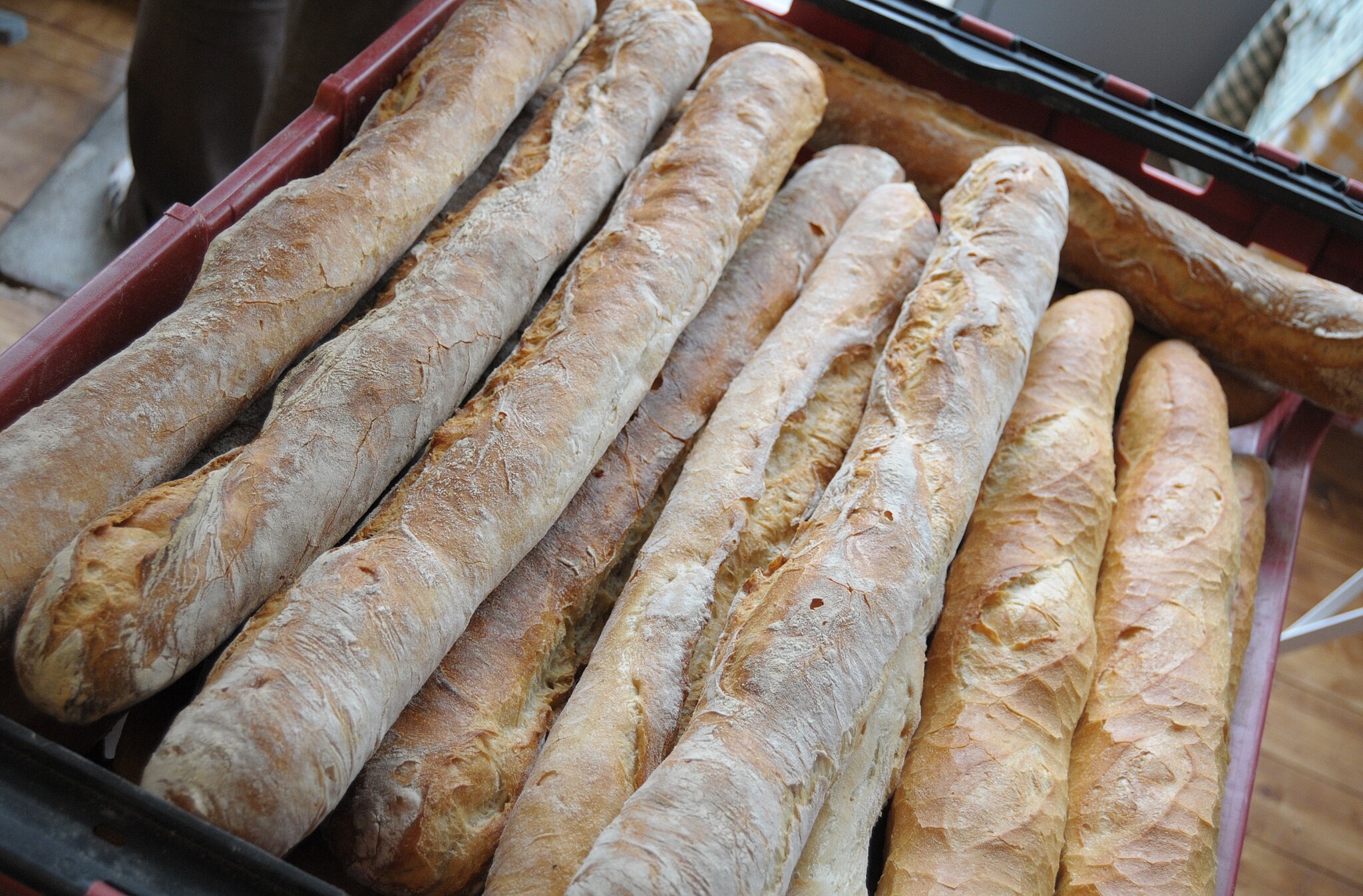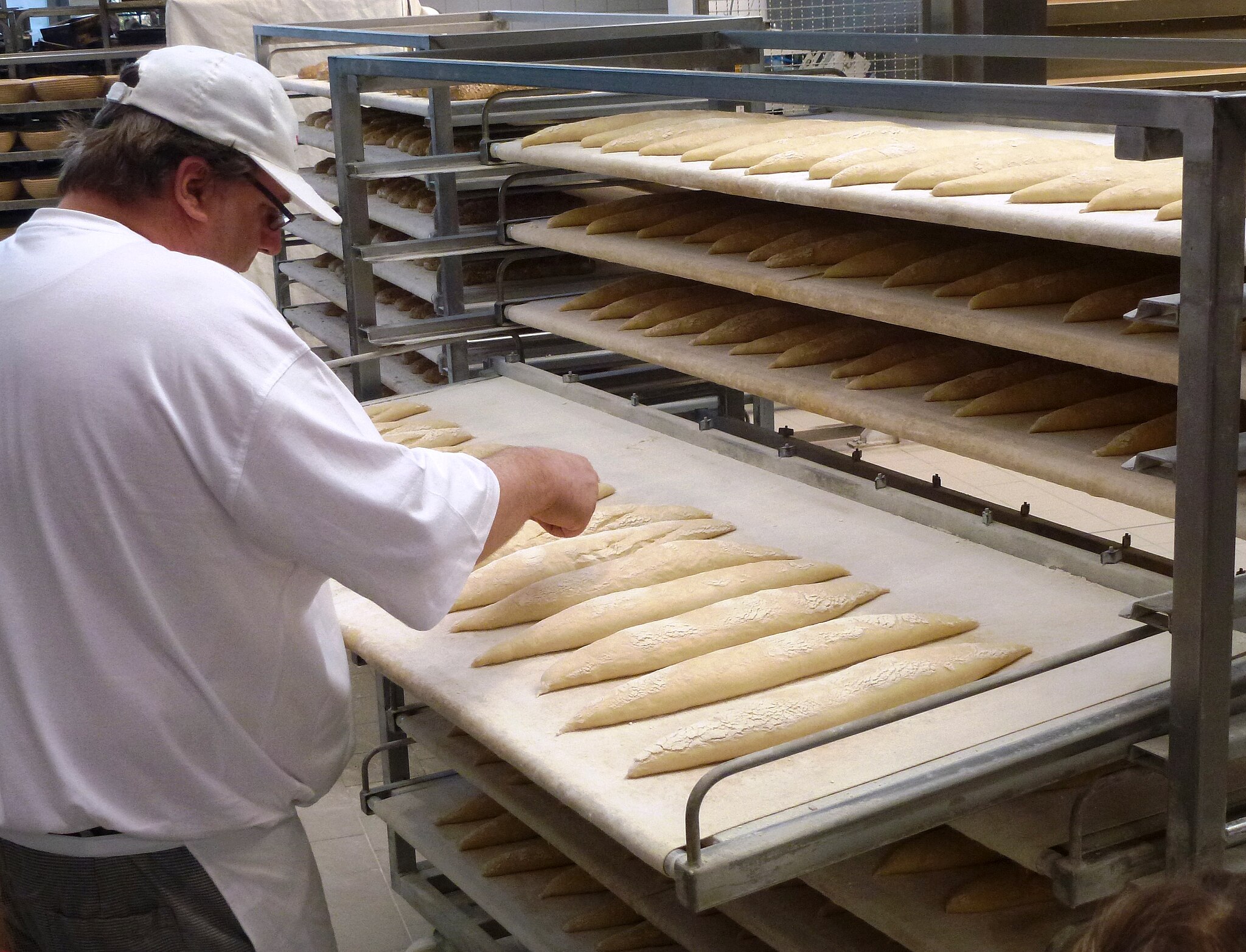Baguettes in France Get a Healthier Twist with Less Salt
Posted by Emily on 16th Oct 2023 Reading Time:
Get ready for a healthier bite of your beloved baguette! France's staple bread is undergoing another recipe transformation to benefit public health, starting October 1.
 Kathryn Cartwright, edycja: niedzielny leń, CC BY-SA 2.0, via Wikimedia Commons
Kathryn Cartwright, edycja: niedzielny leń, CC BY-SA 2.0, via Wikimedia Commons
This change comes as the national governing body of French bakeries and patisseries mandates a decrease in salt levels in bread, marking the second such reduction in two years. The new norm requires that salt content in standard or traditional baguettes be no more than 1.4g per 100g. "Special breads" will contain even less: just 1.3g per 100g. This follows a commitment in 2022 to limit salt to 1.5g/100g, a goal that 82% of bakeries successfully achieved.
The baking community is tasked with tweaking their beloved recipes to align with these guidelines. They can offset the reduced salt by employing alternatives like active yeasts or yeast extracts to ensure the dough rises well, as suggested by the bakers' confederation.
But why the focus on salt? This initiative echoes global health efforts, like those from the World Health Organization, which is encouraging a 30% reduction in salt intake by 2025. Ideally, an adult shouldn't consume more than one teaspoon of salt per day (about 5g). Yet, the average French person's diet exceeds this by 2-3g.
Bread, particularly baguettes, is a smart target for this health drive. With 10 billion baguettes purchased annually in France and an average bread consumption of 105g per person per day in 2021, any improvement could have a significant impact.
Faïza Bossy, a respected vascular doctor and nutritionist, applauded this health-forward decision. Speaking to BFMTV, Bossy emphasised the positive effect on the humble baguette, celebrated for its simplicity and nutritious combination of flour, water, and salt. More importantly, less salt means a direct attack on high blood pressure, often dubbed a 'silent killer'.

As the confederation monitors this shift, there's optimism in the air. French bakeries, having risen to the previous challenge, are expected to successfully embrace this latest health-boosting adjustment.
Of course, the iconic baguette, recognised by UNESCO for its cultural significance, isn't France's only bread, though it's a relatively recent culinary invention, becoming widespread in the 19th and 20th centuries. While other varieties like croissants, brioches, and the sumptuous fougasse (a cousin to the focaccia) also delight the palate, there's something irreplaceable about the baguette. After all, as the saying goes, "une journée sans baguette est vraiment une mauvaise journée" (a day without a baguette is truly a bad day). Here's to continuing the tradition — just a bit healthier!

